Even though Pakistan faces issues like bad governance, a weak system, and no accountability, it is still a country full of talent, creativity, and young energy. More than 64% of our population is under 30. Everywhere you look, you’ll find hardworking people trying to improve their lives. And yet, many of the same social issues keep holding us back,dirty streets, traffic chaos, corruption, weak healthcare, and poor infrastructure.
What makes this more frustrating is that these are not new problems. Other countries faced the same challenges decades ago. The difference? They are answerable to their people, found modern, working solutions and stuck to them. Meanwhile, we continue to repeat the same mistakes, reacting only after a crisis hits instead of planning ahead. The biggest example I can give you, a rigged election in 2024 and floods in 2025
As an overseas Pakistani living in North America, I’ve seen this contrast with my own eyes. Take something as simple as rain: in Chicago, it can pour for hours, yet the city doesn’t drown. Why? Because they built a proper drainage system years ago. But in Lahore or Karachi, a few hours of rain turns roads into rivers. The people are the same,hardworking, resilient,but the systems are completely different.
The truth is: Pakistan doesn’t lack good people, it lacks good systems. Civic sense, education, healthcare, infrastructure, accountability,these aren’t luxury items. They are the basic foundations of a functioning society. And the best part? We don’t need to reinvent the wheel. The solutions are already out there. We just need the willpower and honesty to apply them in our own way.
In this article, I’ll walk you through the top five social issues Pakistan faces today and show how countries like the USA and Canada have already solved them. This is not about copying the West,it’s about learning what works and adapting it to our own values and culture.
If others can fix these problems, so can we. All it takes is planning, discipline, and accountability. And if we want to see a brighter Pakistan for the next generation, the time to start is now.
1. Lack of Civic Sense
One of the biggest challenges in Pakistan is not money or resources,it’s civic sense. By civic sense, I mean simple things: not throwing trash on the road, following traffic rules, standing in line, giving way to ambulances, respecting public property. Sadly, many of us in Pakistan don’t treat these as serious responsibilities.
You can see it everywhere. Streets filled with garbage. Drivers blocking intersections because everyone wants to push through first. Motorcyclists ignoring red lights. People spitting on walls or writing graffiti on public spaces. It feels normal now, but it shouldn’t be.
Now let’s compare this with what I’ve seen in North America. Here, people also don’t naturally have civic sense,they were trained into it. And the training came in two ways: awareness and accountability.
- Awareness: From a young age, children are taught that following rules is part of being a good citizen.
- Accountability: If awareness doesn’t work, then fines do. Throw trash on the road? You’ll get a ticket. Break traffic rules? You’ll lose points on your license.
The results are clear: in the USA and Canada, you rarely see littering or traffic chaos at the same level as in Pakistan. Not because people are “better” but because the system makes it easier to do the right thing and harder to do the wrong thing.
For Pakistan, the solution isn’t impossible. We need two things: strict enforcement and massive awareness campaigns. Start with schools, TV, and social media,make civic sense part of daily life. At the same time, apply real fines for littering, reckless driving, or damaging public property. Over time, these small steps create big change.
Civic sense is not about being “modern.” It’s about being responsible. And without it, no system can work.
2. Flooding & Poor Infrastructure
Every year when the monsoon rains arrive, cities like Karachi and Lahore turn into rivers. Roads are blocked, neighborhoods are submerged, and people lose homes, businesses, and sometimes even their lives. It’s heartbreaking because this is not a “natural disaster” alone,it’s a result of poor planning and weak infrastructure.
I still remember landing in Lahore during heavy rain. Within minutes of leaving the airport, I saw cars half-submerged, people pushing rickshaws through knee-deep water, and streets completely jammed. Compare that to when I landed in Chicago during a rainstorm,the rain was just as heavy, but life went on. The difference? Chicago invested in a proper drainage system decades ago.
Chicago built something called the Deep Tunnel Project (TARP),a massive underground network of tunnels and reservoirs designed to catch rainwater and sewage overflow. It wasn’t cheap, and it took years to complete, but today it protects millions of people from floods. The money spent upfront saves billions in damages every year.
Floods happen in Pakistan every year, but govt and officials do not treat them seriously. Our leaders leave the people to suffer and go to other countries during floods, like in the 2025 flood. In America, floods happen too, but their local governments work hard to protect people, not just do photo shoots. For example, New Orleans in the US is below sea level. In 2005, a terrible hurricane called Katrina flooded about 80 to 90% of the city. After that, federal, state, and local governments worked together to help the people during and after the floods. They made sure New Orleans could return to normal life. That is now part of history. We should ask why we don’t do the same in Pakistan.
In Pakistan, we often respond to floods only after the disaster hits. Roads are built without proper drainage. Stormwater drains are clogged with garbage. Billions are lost in damages year after year. Instead of planning long-term, we patch the problem temporarily and wait for the next disaster.
The solution is simple but requires commitment:
- Urban Planning with Drainage in Mind – Every new road, housing society, or flyover must have proper drainage designed before construction.
- Clean and Maintain Existing Drains – Even the best systems fail if they’re blocked. Garbage management is critical.
- Long-Term Investment – Pakistan doesn’t need to reinvent the wheel. We can study models like Chicago’s TARP and adapt them to our cities.
Floods don’t have to be “normal life” in Pakistan. They are preventable if we treat infrastructure as a priority, not an afterthought.
3. Corruption & Weak Governance
If there’s one issue that touches every corner of life in Pakistan, it’s corruption. Whether it’s getting your child into a decent school, applying for a driver’s license, or seeing a road project completed,corruption slows everything down and eats away at public trust.
We’ve all seen it. A project starts with huge promises, but by the time it’s finished,if it even gets finished,the quality is poor because the funds were misused. Remember the 2005 earthquake? Billions in aid poured in to help victims. But within months, much of that aid was mismanaged, and supplies meant for families ended up for sale in bazaars.
Now, let’s compare this with what happens in the USA or Canada. Corruption exists everywhere, it’s human nature. The difference is in governance and accountability. Here, leaders and institutions are answerable to the people.
- Transparency: Government projects are open to public audits.
- Media & Law: If a leader misuses funds, the media and courts hold them accountable quickly.
- No Untouchables: Even presidents face investigations if rules are broken.
For Pakistan, the lesson is clear: corruption won’t end by speeches alone. We need:
- Strict Auditing of Public Projects – Every rupee spent should be traceable.
- Independent Institutions – Courts, media, and accountability bodies must be free from political pressure.
- Public Awareness – Citizens should demand accountability instead of accepting corruption as “normal.”
Corruption is not just about money,it’s about trust. When people lose trust in leaders, progress becomes impossible.
4. Education System Gaps
Education is the backbone of any nation, but in Pakistan, it’s also one of our biggest weaknesses. Walk into a government school in a village and you’ll see broken furniture, no libraries, outdated textbooks, and teachers who are either overworked or missing. Then, just a few miles away, you’ll find elite private schools charging high fees with modern facilities. The result? A deep divide between children of the rich and poor.
This gap creates two Pakistans,one that can compete globally and another that struggles even with basic literacy. Millions of Pakistani children are still out of school. Even for those who attend, rote learning dominates. Students memorize answers instead of developing critical thinking or creativity.
In North America, the difference is in approach:
- Equal Access: Public schools give every child a fair chance.
- Modern Curriculum: Focus on creativity and practical learning.
- Public Libraries: Free resources available for all children.
Pakistan can take steps like:
- Invest in Public Schools First – Better facilities, teacher training, and updated curriculum.
- Shift from Rote to Understanding – Exams should test learning, not memory.
- Community Learning Spaces – Libraries and centers in every district.
Education isn’t just about jobs,it’s about building responsible citizens. If we want Pakistan’s youth to lead the future, we must close the education gap.
5. Healthcare Access & Quality
Health is one of the biggest worries for ordinary people in Pakistan. Government hospitals are overcrowded, short on staff and medicine. Private hospitals may give better care, but they charge so much that most families can’t afford even basic treatment. In villages, many people don’t even have a clinic nearby. Imran Khan’s government started a health card worth 1 million, but the incoming Shahbaz government ended it as their first step.
In North America, it’s different. Even if you don’t have much money, you can still walk into a clinic and get treated. Public healthcare, insurance, and community health centers make sure no one is left behind.
So why can’t Pakistan do the same? The problem isn’t doctors or hospitals,it’s how the system is run. With better planning, we can make big changes:
- Strengthen Public Hospitals – Improve cleanliness, provide medicines, hire more staff.
- Affordable Health Insurance – Small monthly contributions can help families in emergencies.
- Rural Clinics – Small, well-equipped clinics in villages can save lives.
Healthcare should not be a luxury only for the rich. It should be a basic right for every Pakistani.
Conclusion
Pakistan is full of potential. We have smart, hardworking people and one of the youngest populations in the world. But our biggest problems,lack of civic sense, flooding, corruption, weak education, and poor healthcare,keep pulling us back.
The truth is, these problems are not new. Other countries had the same issues, but they solved them by planning ahead, building strong systems, and holding people accountable. I’ve seen it myself while living overseas. The people here are not “better” than us,they just follow rules and trust systems that actually work.
For Pakistan, the lesson is clear: we don’t need to copy anyone, but we can learn from what works. Small steps like teaching civic sense, investing in schools and hospitals, cleaning drains, and punishing corruption can create big change.
This is not about complaints,it’s about hope. If others can fix these issues, so can we. All it takes is honesty, discipline, and the will to put people first.
The next generation of Pakistan deserves better. And with the right choices, we can give it to them.

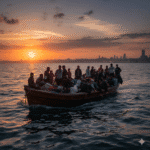
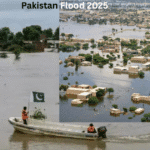
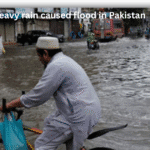



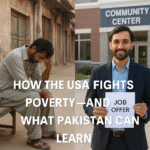
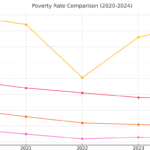


1 thought on “Top 5 Social Issues in Pakistan & Solutions (Overseas Pakistani Perspective)”